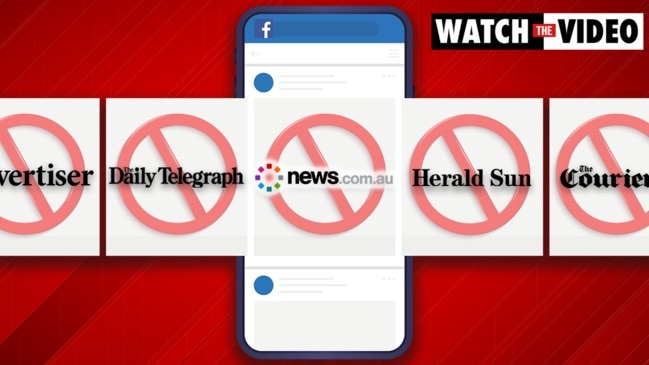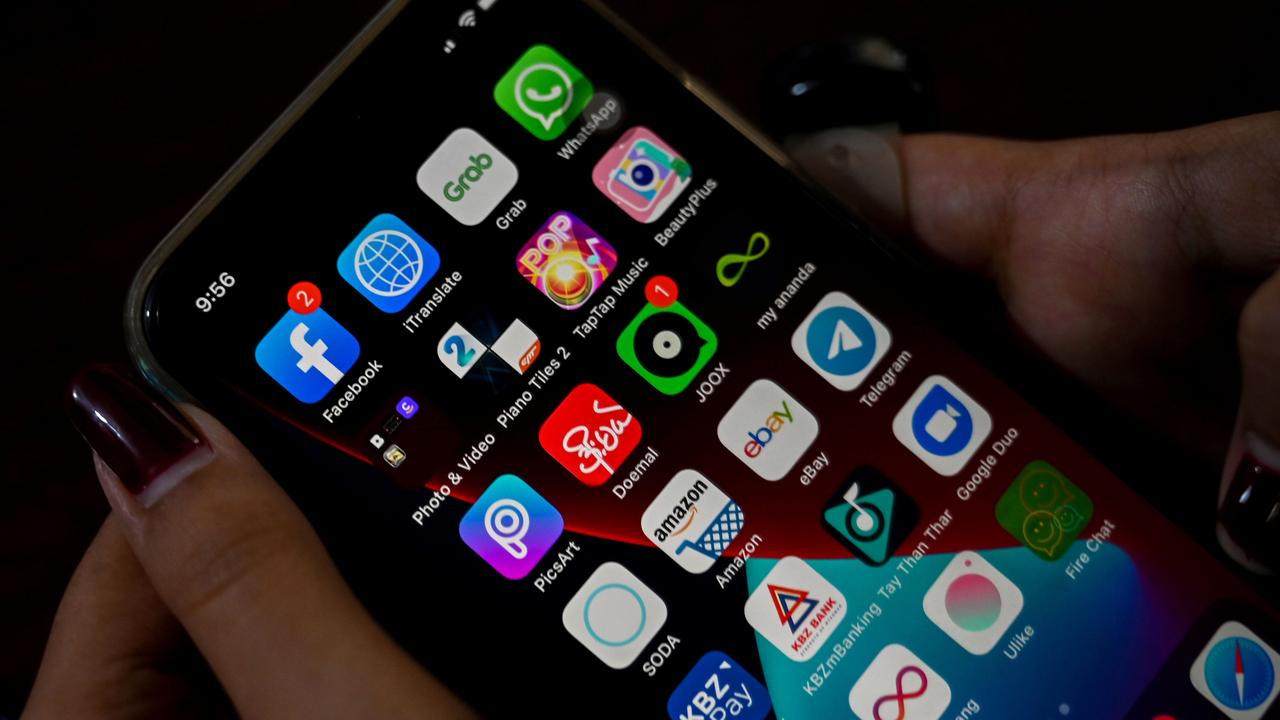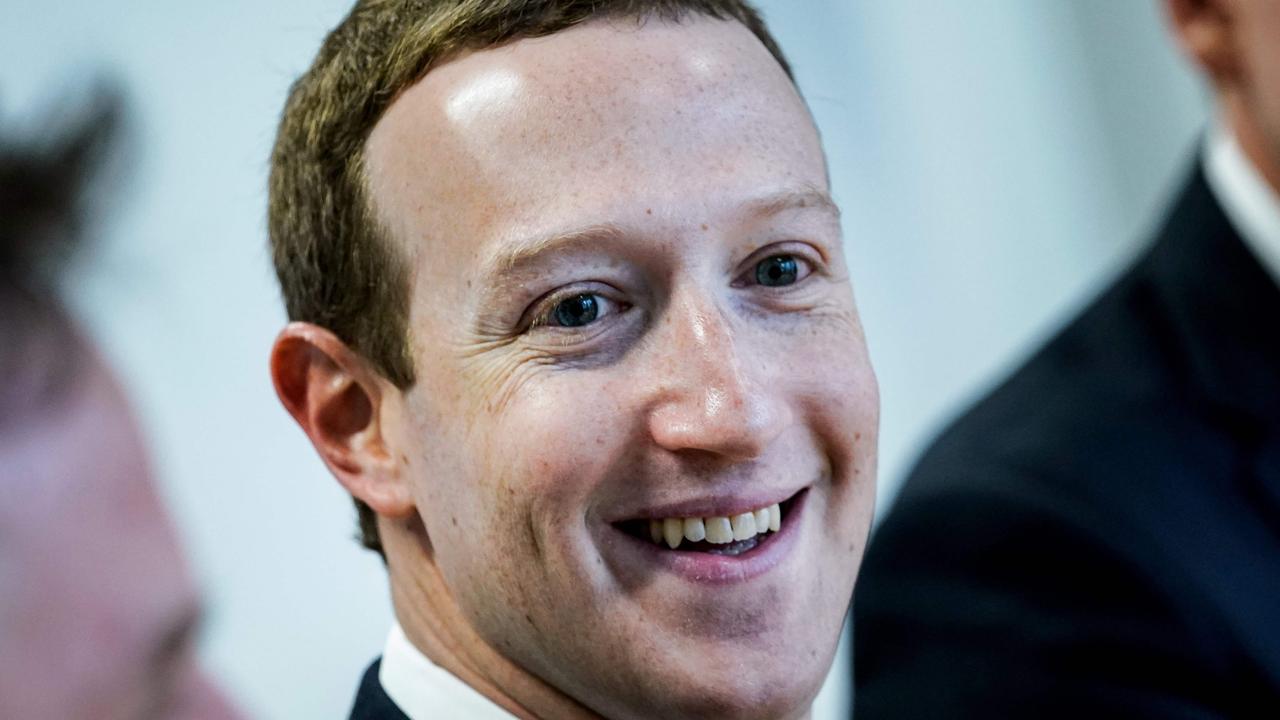Social media giant bars Aussies from sharing or viewing news over proposed Media Bargaining law
The social media giant’s shock decision to ban Australian news content has stunned experts who claim it will have an alarming side effect.

Facebook has responded to a proposed new law by banning Australian users from reading or sharing news on its platform.
The stunning decision was made in retaliation to Australia’s proposed new Media Bargaining law, with the federal government pushing forward with a plan to force social media giants to pay for news content.
Facebook and Google both initially responded with fury, with Google threatening to pull its search engine from the country during an inquiry in January.
Now, Facebook’s bombshell decision means Australian news publishers will no longer be able to share stories on Facebook, and international news won’t be visible or able to be shared by local Facebook users, while overseas Facebook users also won’t be able to read or share Australian content.
News Corp Australasia executive chairman Michael Miller hit out at the decision this morning, claiming it will lead to alarming consequences.
“You will have also seen this morning that Facebook has used its powers to change its algorithms in a way that punishes Australian news media,” he said today.
“This is a move that clearly encourages fake news over reliable news and demonstrates the extraordinary market power Facebook holds.
“While we are disappointed in Facebook’s moves today, we have had months of discussions with them to date, and we will continue to do so.”
Communications Minister Paul Fletcher also came out swinging this morning, telling the ABC Facebook needs to “think very carefully about what this means for its reputation and standing”.
“They’re effectively saying, on our platform, there will not be any information from organisations which employ paid journalists, which have fact checking processes, editorial policies,” he said.
“They’re effectively saying any information that is available on our site does not come from these reliable sources.”
He doubled down on those comments during an interview with 2GB, but said while the bombshell was worrying, he believed both Facebook and Google would remain in Australia.
“We’ve had continuing discussions with Facebook. They have chosen to make this announcement. There are already questions about the credibility of the information and sources on the Facebook platform,” he said this morning.
“They’re basically saying to Australians: ‘If you’re looking for reliable news, Facebook is not the place to look for it.’
“It costs money to employ journalists who have proper fact-checking purposes and provide reliable information and that is a key policy issue the Australian government is concerned about.
“What has been announced by Facebook this morning raises very serious questions, including the credibility of information on Facebook.”
“The proposed law fundamentally misunderstands the relationship between our platform and publishers who use it to share news content,” he wrote.
“It has left us facing a stark choice: attempt to comply with a law that ignores the realities of this relationship, or stop allowing news content on our services in Australia.
“With a heavy heart, we are choosing the latter.”
RELATED: News Corp, Google hit global content deal

RELATED: Bank’s massive $500 million fail
The discussion involving the proposed law centred on American-based tech firms such as Facebook, and how they benefited from news being shared on their platforms.
But Mr Easton argued that Facebook’s benefit from news was “minimal”.
“Last year Facebook generated approximately 5.1 billion free referrals to Australian publishers worth an estimated AU$407 million,” he posted.
“For Facebook, the business gain from news is minimal. News makes up less than 4 per cent of the content people see in their News Feed.
“Journalism is important to a democratic society, which is why we build dedicated, free tools to support news organisations around the world in innovating their content for online audiences.”
He also claimed the company was prepared to launch Facebook News in Australia and “significantly increase our investments with local publishers” – but only “with the right rules in place”.
“This legislation sets a precedent where the government decides who enters into these news content agreements, and ultimately, how much the party that already receives value from the free service gets paid,” the statement reads.
“We will now prioritise investments to other countries, as part of our plans to invest in new licensing news programs and experiences.”
RELATED: Pete Evans booted from Instagram

Taking to Twitter this morning, Treasurer Josh Frydenberg said he had spoken with Facebook founder and CEO Mark Zuckerberg earlier this morning, and that the pair had agreed to “continue our conversation to try to find a pathway forward”.
In a doorstop interview, the Treasurer said the conversation had lasted for half an hour and was “very cordial”.
“We want them to remain in Australia, but we also want them to pay for original content,” he said.
“Yes, there are some differences, but let’s see if we can work them through.”
Mr Frydenberg added that the government “remains committed to the code.”
“We have agreed to continue our conversation to find a pathway forward,” he said.
“He raised a few issues. They have been negotiating in good faith up to this point with the Australian media businesses and they have been making progress.”
This morning, I had a constructive discussion with Mark Zuckerberg from #Facebook.
— Josh Frydenberg (@JoshFrydenberg) February 17, 2021
He raised a few remaining issues with the Government’s news media bargaining code and we agreed to continue our conversation to try to find a pathway forward.
But late last year, the Australian Competition and Consumer Commission slammed the then-threat to ban news in Australia.
“The draft media bargaining code aims to ensure Australian news businesses, including independent, community and regional media, can get a seat at the table for fair negotiations with Facebook and Google,” ACCC chairman Rod Sims said in a statement at the time.
“Facebook already pays some media for news content. The code simply aims to bring fairness and transparency to Facebook and Google’s relationships with Australian news media businesses.”
And when Facebook first announced the plan in September, Treasurer Josh Frydenberg insisted the nation did not respond to “coercion or heavy-handed threats”.
The following month, the so-called “Tech-xit” report from the Australia Institute’s Centre for Responsible Technology found that the Facebook ban would allow disinformation to “run rampant” in Australia and “worsen an already questionable information environment”.
The announcement has sent shockwaves through the local and international media industries, with high-profile reporters and media companies expressing their dismay on Twitter.
Facebook announcement comes hot on the heels of a global licensing deal inked between News Corp and Google, which will see the tech behemoth make “significant payments” for displaying its content across the world on its Google News Showcase.
Chief Executive Robert Thomson announced the “historic multi-year partnership” for publications including The Wall Street Journal and The New York Post in the US, The Times of London, The Sun and News Corp Australia publications including The Australian, Sky News and metro daily newspapers and websites.
These include The Daily Telegraph, the Herald Sun, The Courier Mail, The Adelaide Advertiser and news.com.au.




